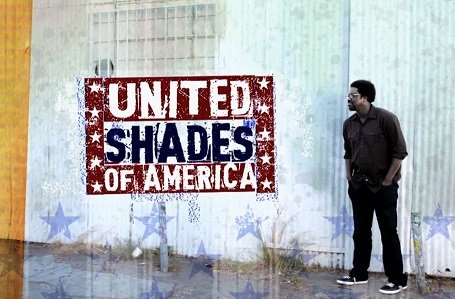(CNN) — Well, it’s that time again. Every four years, like clockwork, the big talk pronouncements begin: the promises soon to be left unfulfilled, the bellicose hype that months from now will be long gone and gladly forgotten. All the chest-thumping and jingoism that we are seeing right now will just melt away and we will go back to business as usual.
You know what I’m talking about. The Summer Olympics? Nope. Guess again. Wait — is LeBron James leaving Cleveland again? No. (Well, let’s see how the playoffs go first. It’s not out of the realm of possibility. Go Warriors!)
What I am actually referring to is all the declarations from people saying, “If such and such candidate wins the election, then I’m going move to (insert name of country with a way more strict immigration policy than the speaker realizes).”
Admittedly, most of these empty proclamations come from the left. The right doesn’t usually threaten to leave the country. When the right feels threatened, it just declares it is going to invent a time machine to take the country back so that America can be “great again.” But the upshot of this desire isn’t wanting to live in another country — it’s wishing to untether yourself completely from reality or at least from the reality of the direction this country is moving in.
If you are threatening to leave or know someone who is, then this week’s “United Shades of America” is for you. In this episode, we head to Asheville, North Carolina, and to the hinterlands of Tennessee to experience life off the grid. To be off the grid is to be disconnected from most of America’s infrastructure without having to cross any border.
For some of the reported 180,000 American families who are doing it, being off the grid means living in a 265-square-foot home not connected to a sewer system, a city’s electrical grid or gas utilities. I had a great time meeting Natalie Pollard, who showed me the tiny home she owns. Her self-described “minimalist” house was sturdy and comfortable, but at the end of the day, as cute and (here’s a weird word to use about a tiny house) impressive as it was, I don’t want to have to think about what to do with all my bodily fluids (and worse) that have piled up throughout the day.
For others, living off the grid — outside the reach of “the Man” — is a form of ultimate patriotism. It means building a home way outside of town where nobody knows where you are — away from the government (and its taxes, building permits and firearms licenses). And of course then you have to load up on all the guns and ammo that you can find, so in case somebody does happen to stumble upon you they will think twice about asking to come in for dinner. While filming the episode, we got to hang out with one such man, who told me his name but wouldn’t show us his real face on camera (and I’m not holding my breath that it was his real name, either).
And still other people define off the grid as living simply, if not so cleanly. I met a guy named Tod Kershaw. (Yup, Tod is so off the grid he only uses one “d” in his name.) Tod decided years ago to strip away all the distractions, complications and frustrations of modern life (and I would say, a lot of the fun, too).
Tod is truly living off of the land. He lives in a thatch hut on the side of a hill in the forest, eating mostly whatever he can forage — though he does still throw an occasional latte into the mix. He is human after all.
I had some of Tod’s forage. And while I totally applaud his commitment to this way of life, I’m not ready to trade in my Yelp app for Tod’s bear meat. (Not that my phone would have made any difference in most of these places. Off the grid almost always means “no service.”)
And then finally in this episode, I met with people at The Farm. They went full on off the grid, and kind of ended up building their own grid in the process. It started out west in San Francisco with just a few people. Then they recruited a larger community and headed back East, out to the hinterlands of Tennessee, where they bought up acres of land and built a whole new town and intentional community, The Farm Community. And when they realized they needed an industry of some sort to sustain them, they came up with two things: tofu and babies. The Farm has a world-renowned midwifery program. If this sounds like a 1960s hippie vision of peace and love, I can confirm that it pretty much is.
All told, this off the grid thing is a messy business. And it is a business. In most major cities, you can find stores for urban homesteaders. They sell everything you need so that you won’t need anything. Sort of a “Take This Civilization and Shove It” starter kit.
Where do I fit in all of this you ask? Well, I don’t. While I too am often tired of the reach of the Man, I am appreciative of what the Man has to offer: GPS, WiFi, the Internet, my apps (Yelp, Lyft, Words with Friends, and well, pretty much everything on my phone that keeps me connected).
And to all my liberal friends out there talking tough about packing up and moving if a certain candidate becomes the next president, just know you aren’t truly off the map until you are off the grid.
W. Kamau Bell is a critically acclaimed sociopolitical comedian featured on “Kamau Right Now!” on KALW radio in San Francisco and CNN’s “United Shades of America,” which airs at 10 p.m. ET/PT Sundays. The opinions expressed in this commentary are his.
